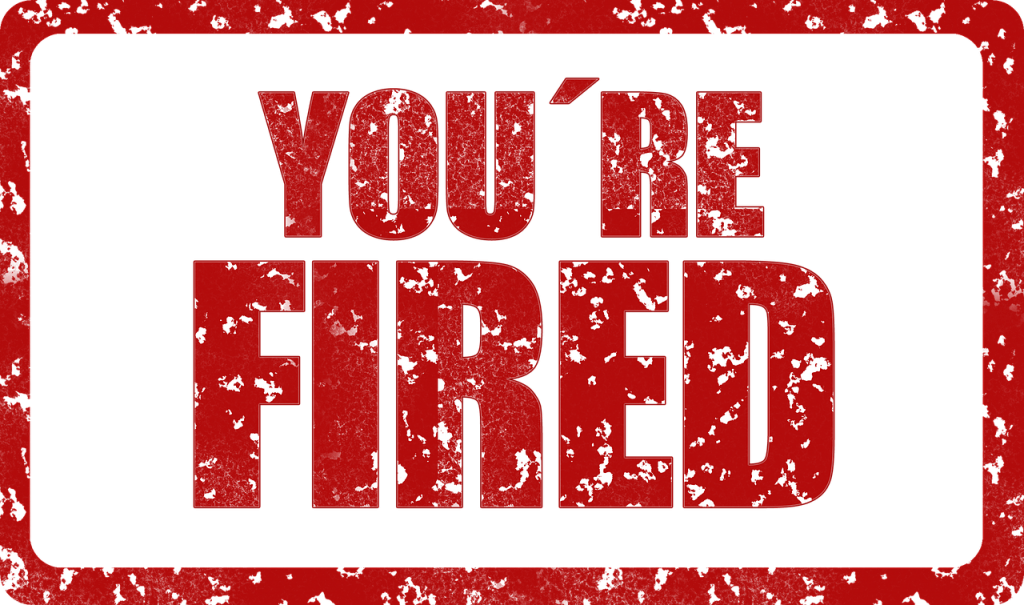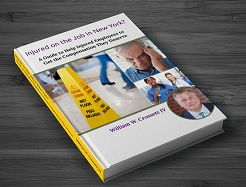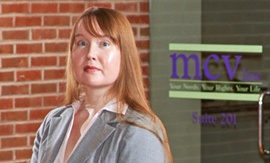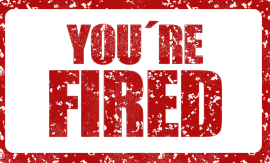
You can be fired while on Workers’ Comp., but there’s a lot more to consider than what can be provided in a yes-no answer. You still may have means to protect your income if fired while on Workers’ Comp.
While you can be fired while on Workers’ Compensation, employees who are covered by the Family Medical Leave Act of 1993 receive up to 12 weeks of unpaid, job-protected leave. The protections from the Family Medical Leave Act (FMLA) often are applied at the same time as NY Workers’ Compensation Benefits. The Family Medical Leave Act does not provide pay or benefits, but protects your right to return to your job within the 12 week period.
Not all employees are covered by FMLA protections. Generally, employees who are protected by the FMLA are given a written notice to their rights under the law. This notice is usually given around the same time a Workers’ Compensation case begins.
For example, John files a NY Workers’ Compensation claim. John then begins his 12 weeks of unpaid, job-protected leave as part of his rights under the FMLA. During this 12 week period, John may be receiving Workers’ Compensation benefits.
During this 12 week period, John is fired while on Workers’ Compensation. John’s termination would be unlawful in this case, as he was fired during the protected 12 week period.
According to New York State law, being fired while on Workers’ Compensation is not discrimination. This is because NY law allows employers to replace you if you’re unable to perform your work.
However, you cannot be fired while on Workers’ Comp. just for filing a NY Workers’ Compensation claim. You also cannot be fired for being a witness in another person’s Workers’ Compensation claim. If you were to be fired while on Workers’ Comp. with the only reason being that you filed for Workers’ Compensation or acted as a witness in another person’s Workers’ Compensation claim, this would be considered discrimination under NY workers’ compensation law.
If you’re fired while on Workers’ Comp. and your job termination was solely because you filed for Workers’ Compensation or you were a witness in another person’s Workers’ Compensation claim, you can make a Section 120 claim.
A Section 120 claim only applies to these two circumstances of wrongful termination. Because of this, it’s very difficult for a worker to prove a Section 120 claim. Most employers have a deep understanding of the law as it relates to Section 120 claims, and therefore are very careful with their reason for firing you while on Workers’ Comp.
After being fired while on Workers’ Comp., you still may have ways to protect your income and provide for you and/or your family. If or when you’re fired while on Workers’ Comp., you may be able to collect unemployment insurance benefits if you have a partial degree of disability.
Determining if you were legally fired while on Workers’ Comp. can be very difficult to decide. The specifics to each case matters a lot in answering the question if you can be fired while on Workers’ Compensation.
For over 30 years, our Workers’ Compensation lawyers near Syracuse, NY have protected the rights of injured workers. To get a free case evaluation from our experienced attorneys, contact us.
 MCV Law Email Sign Up
MCV Law Email Sign Up



When a new real estate purchase contract shows up on my desk I review it for...







Federal prosecutors will typically require an individual to make...

